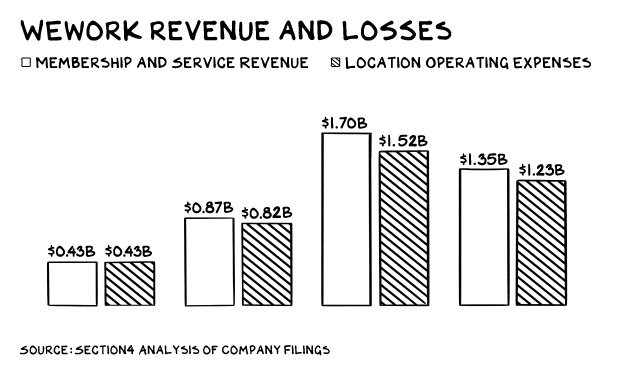Unilever’s Dove Mens+ Care funded film, DADs, lands at Apple during TIFF –

Big news in the branded film space – and worth covering up front, I think. One of the big sales announcements at the Toronto International Film Fest (TIFF) was Dads, by Bryce Dallas Howard, which was picked up by Apple for its new Apple TV+ subscription service. The film was produced by (her father) Ron Howard, but most interestingly, it was funded by Dove Men+Care, a Unilever company (full disclosure, I’m working with Unilever on another project). In fact, they announced the partnership from the stage of the premiere.
That’s pretty big news for branded content – that the film got into TIFF, received solid reviews, and Apple made it clear that they are open to branded content on their new service (if it’s good). This follows the May premiere of 5B, by Dan Krauss and sponsored by Johnson & Johnson, at Cannes, in competition, which then won the Cannes Lions Grand Prix, which is an advertising award, and it was then picked up by Verizon/Ryot and got a theatrical and digital release, also to good reviews. It’s clear that good branded content is getting some attention.
Miscellany

WeWork and the death
of Real Work in the City – off topic here for sure, but I’m going to write
a longer article or book about this sometime, and given the We
Company’s upcoming IPO, I’ll weigh in with my opinion now. Plenty
of others
have written
about the ridiculous
valuations of this company and the downsides
of it as an investment (here’s
HBR if you want a good summary, or better yet, Scott Galloway), but no one is
covering what I think is the biggest problem with WeWork – how it is killing
off real work-ing businesses.
WeWork is destroying New York City and probably every other town of any value.
It’s a gigantic vacuum
of suck –
hoovering up investments,
office
– and now
living – square footage, startups
galore, entire
city blocks, press
attention, millennial
brain-power, design-sense
and the last
crumbs of dirt from the fingernails of the strivers who scraped their way
into the city decades ago.
The average rent for a dedicated desk at WeWork in NYC is $636 a
month, and the average individual office space is 36
square feet., compared with the industry average of 150 sq. ft. This is
just for a one person, one desk office, mind you, and an actual office costs
much more. At that rate, you’re looking at about $212 per square foot. You
could rent in the World Trade Center or Hudson Yards for that rate. It’s
actually double the
highest average Class-A office space rental cost in Manhattan. They claim
you save money on build-out and desks, and kegs, etc. but trust me, you can set
up an office for cheaper than the difference in cost.
But because start-ups can’t do math and figure out what price per square foot means, and because they don’t have the money for the deposits required for normal offices (usually 10 years), and because they are funded by Venture Capitalists who don’t really care, they can just spend these insane amounts of money. No one spending their own money would pay these kinds of prices for rent. In fact, anyone who wants to make a profit wouldn’t pay these prices – and for the most part, they don’t – they sign long-term leases with real landlords to bring down their overhead. You have to be playing with “funny-money” to enter this game.
In fact, you can almost look at this as a weird circular washing machine – VC’s invest in startup-A, who rents at astronomic prices from another startup-B (WeWork) founded with VC cash; then startup-A hires employees who only buy from other startups (like Seamless), and take rides from other startups (like Uber) funded by other VC’s. Few of said start-ups make any actual profit, and get by with more VC funding. Importantly, little of this value actually accrues to anyone else – just the founders and the VC’s. And WeWork sells this on a false sense of creating a new kind of community – where you live, work, play, eat, and send your kids to school, in a community of the new economy. But what you’re really supporting is a late-stage capitalist machine that ends up profiting one person – the founder of We. Ironic name, no?
Meanwhile, real businesses – ones that actually contribute to the local economy and to our culture, and that have to make a profit to stay in business – are pushed out. Further and further, as WeWork colonizes even the outer-reaches of the City. Manufacturing, small industry, the entire garment-industry in Manhattan, artists, crafts-people, small businesses, trades… you name it, they’re getting pushed out. Often for a WeWork space that houses a start-up that won’t survive the upcoming recession, if they even make it that far. This has happened in NYC, and appears to be happening in every City of any size around the world.
Unfortunately, when it all comes crashing down – which it will – Regus (it’s profitable, public, less-sexy competitor) will pick up some of the pieces, but the damage will be done, and most of these displaced, real businesses won’t be able to return. The shops their employees went to – the ones not owned by CVS or Walgreen/DuaneReade or VC-backed businesses – are gone as well, and won’t come back. There’s a reason you see so many empty storefronts in Manhattan, and it’s intimately tied to this cycle.
There’s a movie in this somewhere to be sure, but unfortunately, that won’t bring back the value that has been lost thanks to the We Company.
FILM
The Netflix Wars hit TIFF – early in the festival, a journalist noticed that none of the Netflix or Amazon titles were playing in the ScotiaBank Theater, owned by Cineplex, and TIFF had to confirm that Cineplex wasn’t allowing streamers to show there at all. This is for industry and press screenings, mind you, showing that the brains of the theaters management are sized inversely proportional to the size of those big screens in that theater. This is nonsense that won’t help win the streaming vs. theater wars.
How many Indie Films Hit Cinemas? Stephen Follows analyzes the data, and it ain’t pretty. Out of 877 films analyzed, and removing Hollywood films, just 17% made more than $100K at the box office. Send your kids to film school, folks.

Google Has a New Tinder Style Interface for Finding Films – About time. The NextWeb article has all the info on how to use it, but just type “What’s good to watch” on Google, and they’ll show you an easy to swipe system that learns from your thumbs up or down, etc. and it shows where everything is available to stream. You can narrow down by platform too. Perhaps this system will finally help solve the over-abundance problem.

25 New Faces of Indie Film – Filmmaker Magazine’s Annual report on the 25 rising stars of indie film hit the streets and online. This gets reported a lot, but in case you missed it, check out the list for some talent to watch.
Apple TV+ Has Launched – at $4.99/mo. This has been reported everywhere, but in case you’ve been under a rock. And The Wrap has the full line-up that they’ll launch with soon. People are saying the streaming wars are going, but it seems to me, we’ve just built a worse TV. That said, they also launched the iPhone 11, and Sean Baker took to the stage along with others, to tout it’s great video capabilities. Read more about that via the Guardian. And CNET has the goods on how their subscription gaming service will work – including the ability to play offline.
Vulture announces Bilge Ebiri and Alison Willmore as critics – About time. Bilge has written for Vulture and NYMag off and on for a long time, but is now full-time at Vulture. Bilge is literally the smartest critic, and best writer, out there and deserves to be at the NYT – or MOMA – (full disclosure, he’s also a friend). Willmore has more than proven her critical chops at Buzzfeed (and Indiewire before that). Congrats to both.
The Radical Film Fair hits NYC this weekend – Presented by Eyeslicer and Kickstarter, there’s lots going on for those of you near Brooklyn this Sunday.
Robert Frank, photographer and filmmaker, dies at 94 – The NYT has the obit for Frank, who was one of my favorite photographers and filmmakers. While he’s best known for The Americans, many also know him for his films like Pull My Daisy. I was lucky to meet him once, and was inspired by his work. There’s a great film about him from Muse Film & Television (I was on the board once), called An American Journey, In Robert Frank’s Footsteps, by Philippe Seclier, you can still get it on DVD on Amazon via KinoLorber.
BRANDED CONTENT
Marketers are capitalizing on documentary filmmaking’s golden age reports DigiDay (h/t BrandStorytelling): “It’s always hard to find funding, but [that viewership trend] has made my pitch to brands easier and more attractive,” said Shaun MacGillivray, president of film studio MacGillivray Freeman Films.
Advertisers aren’t worried about key execs leaving Quibi, reports Digiday. Sure, it might not matter, but it was some key talent, and just before launch.
The Tow Center at Columbia Journalism published a guide to Native Journalism – worth a look if you or your company is moving into this space. It’s got some great summaries, best practices, and concerns. Unsurprisingly, they found that publishers and brands saw no ethical issues, but that there was a clear lack of transparency around native content, and that consumers are confused by this obfuscation. I think this stuff can work and be done well, but it risks lowering consumer’s trust in news even further (it’s already pretty damn low), so publishers need to get more transparent fast.
Social tagging: branded content > TIFF > Unilever > WeWork